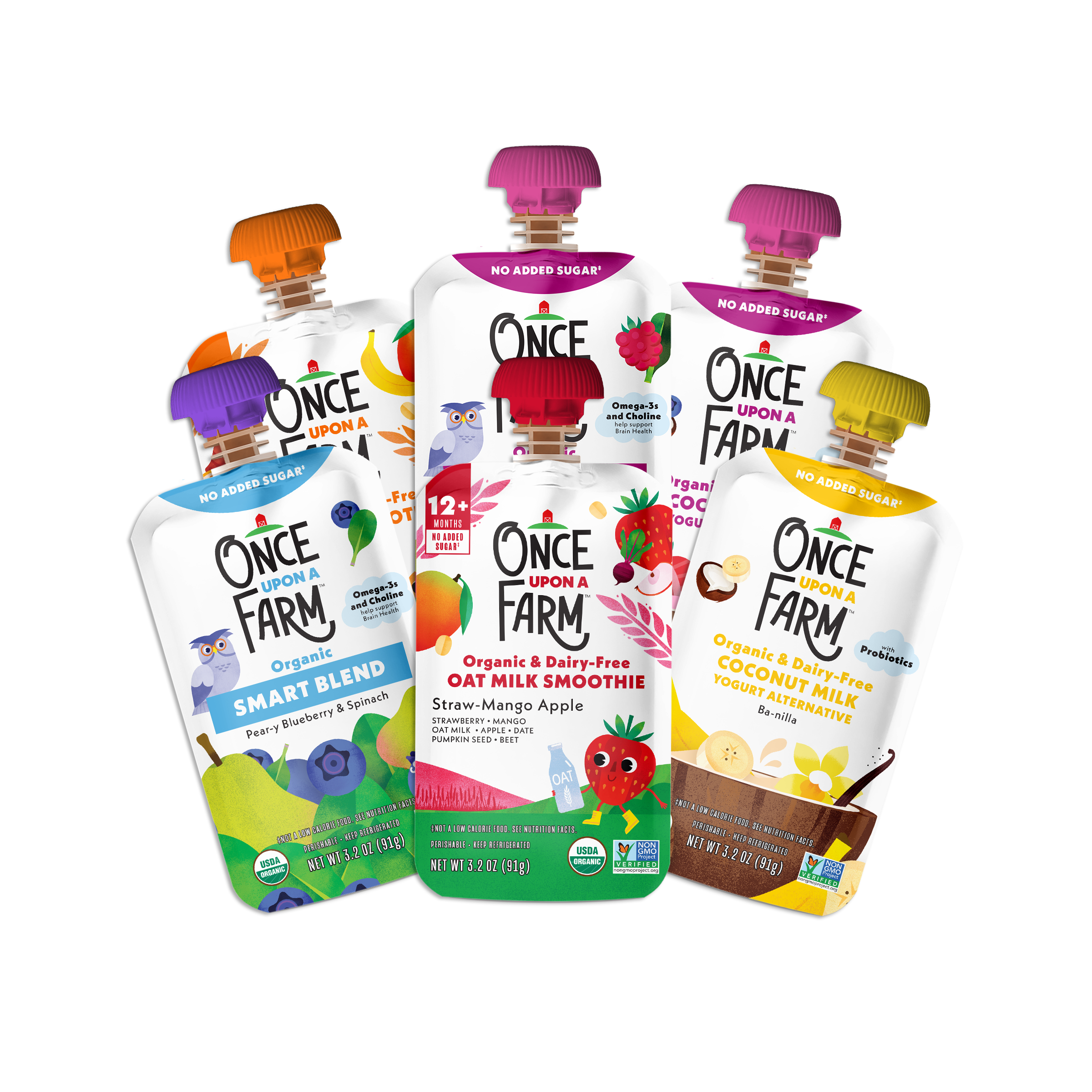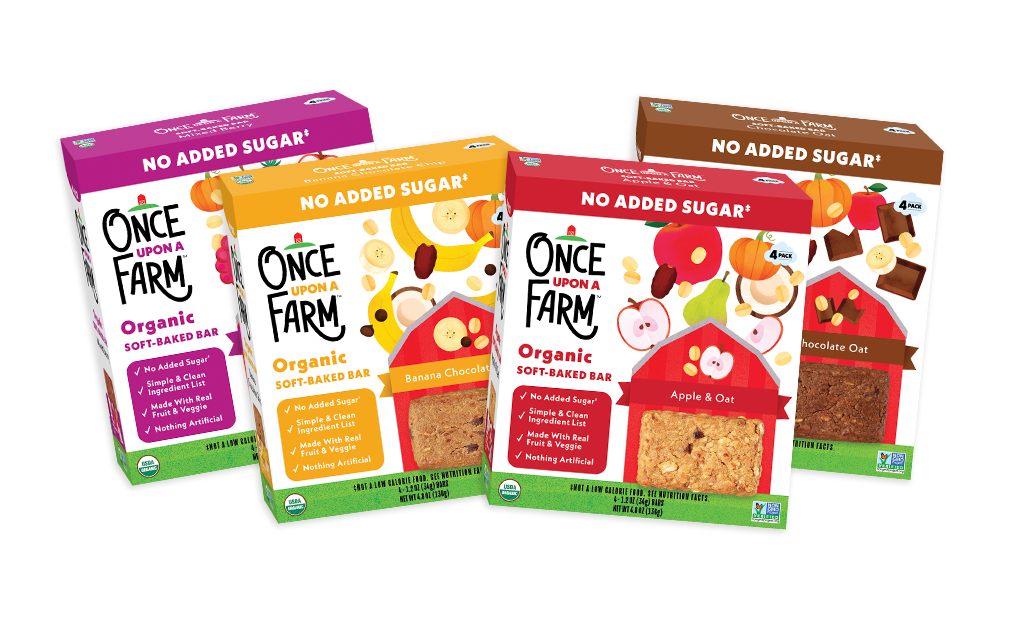Note: This blog is not medical advice and is for informational purposes only. For any specific recommendations or concerns, please refer to your child’s healthcare provider.
As a parent, you get advice and recommendations from everywhere—friends, family, professionals, the internet. Some of this guidance you will seek out and welcome, other times it may be thrust upon you. But you also have a parent’s intuition as you are the one who knows your child best. So, when should you cut out the noise and trust your gut?
We wanted some advice here, so we spoke with pediatrician Joana Fraser, MD about some parenting scenarios to help you figure out when to seek guidance and when to go with your gut.
Scenario #1: Deciding What to Feed Your Child
Even before their baby starts solids, many parents feel anxious about feeding. It’s important to do your research and set a plan, but there will also come a time—once you’re on the journey—where you can trust your gut about what and how to feed your child.
When To Trust Your Gut: “Go into deciding what to feed your child with full faith that they will (eventually) enjoy a variety of foods!” says Dr. Fraser. Your gut will tell you if your child is not quite ready for a specific food and you should trust it. “Do not be pressured into feeding your child certain foods if you do not feel they are appropriate or that they are developmentally ready for them,” Dr. Fraser adds.
When To Seek Guidance: “If your child is showing extreme food refusal or pickiness, or if they seem as though they have difficulty chewing or swallowing,” she explains, “please consult your pediatrician.” Additionally, there are many great pediatric nutritionists and feeding experts you can consult.
Scenario #2: Setting Rules Around the Internet/Social Media
Social media presents a new world of rules and boundaries for our children. Figuring out what kinds of limits to set is a personal choice, and while there may be instances where you may want to seek help, you can usually trust your gut on this important topic.
When To Trust Your Gut: As your child begins to get exposure to these platforms, you will figure out what works best for your family. Dr. Fraser shares, “You may choose to avoid your child using the internet/social media completely until an age of your choosing. Or, only allow a certain number of dedicated hours or require some form of supervision.” Whatever works for you.
When To Seek Guidance: “If you feel like your child’s internet and/or social media use is becoming detrimental to their mental health,” Dr. Fraser says you may choose to seek help from a professional. Additionally, if their consumption is significantly impacting the well-being of others.
Scenario #3: Regarding Who Your Child Spends Time With
Just like for adults, the people your child spends the most time with can have a big impact on them. Whether it’s their friends, or other people in their life, you as the parent will gauge the effects of their various relationships and decide how to proceed.
When To Trust Your Gut: “If spending time with someone is negatively impacting their behavior or mood or resulting in unsafe situations,” Dr. Fraser says, “it may be time to reconsider spending time with them.” This impact is something you will experience either through a gut feeling or observation. Trust your gut here. “If you do not feel comfortable with an individual,” says Dr. Fraser, “it stands to reason you would not want your child(ren) to be around them either.”
When To Seek Guidance: “If you feel that your child is being placed in an unsafe situation, is being excessively pressured to do things they may not otherwise do, or you are worried they are being bullied,” she shares, “I would recommend seeking extra guidance. This guidance or who to reach out to would be highly dependent on the situation.”
Scenario #4: Regarding Sleepovers
The day will come when your little one asks the big question: “Can I go to a sleepover?” The answer is totally up to you.
When To Trust Your Gut: You know your child, and the choice on whether to let them attend sleepovers, or perhaps one particular sleepover, is going to be based on your child, their age, who plans to host the sleepover/who will be present, as well as your personal preferences—in short, you’ll go with your gut.
When To Seek Guidance: This decision is highly personal and one you can confidently make with your family.
Scenario #5: Questions About a Medical Opinion Regarding Your Child
If your child receives care, and you receive a medical opinion that you’re unsure about, you should feel totally empowered to get a second opinion.
When To Trust Your Gut: Dr. Fraser says to trust your gut in these situations. Get a second opinion “if you do not feel comfortable with the information you’ve been given or do not feel like you have received the answers you seek.” You are your child’s best advocate!
When To Seek a Second Opinion (From Another Healthcare Provider): In this scenario, trusting your gut equals getting a second opinion.
Scenario #6: Deciding About Your Child’s Participation in Sports
Whether sports or another potentially risky physical activity, you will likely have questions and concerns. If they are eager to join, you will go at your own pace and learn when to trust your gut, when to push forward, and when to pull back.
When To Trust Your Gut: As Dr. Fraser explains, “Just like you wouldn’t jump straight into a new job at a high level, it’s unrealistic to expect your child to jump into a new activity without some prior experience.” In addition to age, a readiness to participate in sports and other physically exerting activities is very dependent on your specific child—and you know them best. Have a conversation with them, and if you choose to move forward with the chosen activity, move slow, and see how they do. “If they are not getting enjoyment from it, trust your gut and pull back,” Dr. Fraser says. “Remember that time just being a kid, sleep, and spending time with family and friends are important, too!”
When To Seek Guidance: “If your child is suffering from physical pain due a sport or activity, injuries or is lacking time for the right amount of sleep and rest,” she advises, “it’s best to stop and reassess their participation.”
Scenario #7: Regarding Sleep
From sleep training to sleep conditions, snacks before beds and everything in between, your child’s Zs come with lots of Qs.
When To Trust Your Gut: As every child is unique, so is their sleep. As they grow up, you will learn their preferences and nuances. “If it feels like you are winging it for the first year or two,” Dr. Fraser says, “don’t worry. It’s normal to feel that way as they are growing and developing so rapidly their sleep needs change frequently.” As long as you are following safe sleep guidelines, you can trust your gut and avoid all the shoulds. “If your little one is happy, healthy, and safe,” she assures, “you are doing everything you need to do!”
When To Seek Guidance: You may choose to seek guidance if your little one has extreme difficulty sleeping, experiences excessive tiredness, or even if you and/or your partner are suffering the effects of sleep deprivation related to your child’s sleep issues. Dr. Fraser says these are all valid reasons to seek extra guidance with regards to your little one’s sleep.
Whether you choose to trust your gut or seek guidance in any given parenting scenario, you will do what’s best for your child as their advocate and the one who knows and loves them best.





















